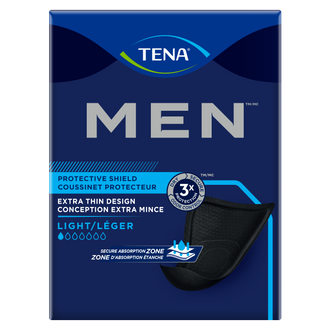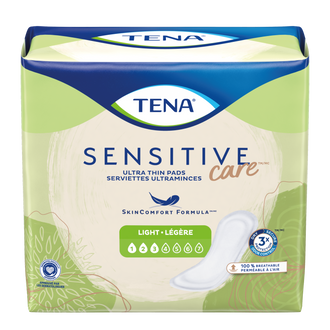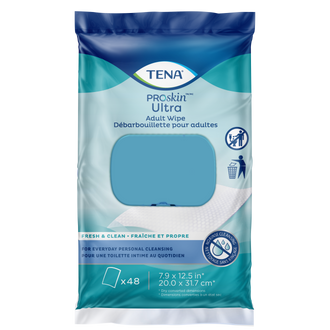Aug 15, 2024
Menopause can feel like an emotional rollercoaster, and the physical changes that often go with it might seem overwhelming at times. If you’re going through this transition, remember—you’re not alone.
In this article, we’ll share practical self-care tips to help you manage menopause. Our goal is to empower you with knowledge and strategies to make this phase easier and more manageable.
From simple lifestyle tweaks to natural remedies and expert advice, we’ve got a variety of tips to support you and keep you feeling fabulous. So, let’s dive in and explore how you can breeze through menopause with confidence and ease!
Preparing for Menopause: What You Need to Know
The leadup to menopause can seem intimidating, and you might feel like you're losing control over aspects of your health that were much easier in your 20s and 30s.1
Symptoms can be unpredictable, making it hard to pinpoint when menopause officially starts. And while hot flashes get most of the attention, there are plenty of other symptoms you might experience.2
While most people can’t expect to be in perfect health when they enter menopause; fear not, there are steps you can take to prepare for this transition and reduce the chances of experiencing significant health issues which we’ll take you through later in this article.1
If you think you're approaching or have already entered menopause, it's important to familiarize yourself with its symptoms and stages. Regular check-ups with a professional who’s knowledgeable about menopause can make a significant difference.1
What are the Signs of Menopause in Women?
Everyone will experience the transition into menopause differently.3 Some women might experience very severe symptoms, while others may not even notice the transition.3 Here are some signs of menopause to look out for:
- Incontinence: Lower estrogen levels can thin the lining of your urethra, and aging can weaken your pelvic muscles, increasing the risk of urinary incontinence.4
- Irregular periods: Before stopping completely, your menstrual cycle may become unpredictable, with changes in flow and frequency.3
- Vaginal dryness: You might also experience dryness and discomfort in the vaginal area. This is due to the decline in estrogen levels, which causes the vagina to lose volume and moisture and become thinner and easily irritated.3
- Hot flashes: Sudden feelings of heat, often accompanied by sweating and flushing. Hot flushes are also due to the decline in estrogen levels.3
- Restless sleep: Hot flashes that occur during sleep and could cause excessive sweating.3
- Mood Changes: Rapid mood swings including irritability, anxiety, or depression.3
- Weight gain and slowed metabolism: We have the decline in estrogen level to thank for an increased difficulty maintaining your usual weight.3
- Thinning or dry hair and nails: Noticeable changes in your hair volume and texture.2
If you’re experiencing incontinence due to menopause, you should check out some of TENA's products designed specifically for urinary incontinence.
Self-Care Tips for Women Going through Menopause
Navigating menopause can be challenging, but here are some self-care tips that may help ease the transition.
Understand Menopause
Menopause typically occurs between the ages of 45 and 55 but can start earlier or later.2 Knowing what to expect can make an enormous difference, allowing you to be better prepared to manage the transition.
Eat a Healthy Diet
Eating well is key. Combine a low-fat diet with high protein, and fill your plate with fruits, veggies, whole grains, and vitamin D-rich foods.3
Exercise Regularly
Stay active! Regular exercise helps manage weight, reduce stress, and boost your mood.3 The CDC recommends at least 150 minutes a week of moderate-intensity exercise and at least 2 days of strength training.5
Manage Your Stress
Find ways to relax. Deep breathing, meditation, yoga, or tai chi can lower stress levels and ease symptoms stress and anxiety that contributes to worsening menopause symptoms.3
Get Quality Sleep
Getting a good night’s sleep is one of the best ways to cope with menopause.6 Stick to a regular sleep schedule and create a calming bedtime routine to improve your sleep quality.3
To manage nighttime leaks, consider using TENA Sensitive Care Extra Coverage Overnight Pads, designed for overnight use. These pads provide reliable protection and help you rest comfortably through the night.
Hydration, Hydration, Hydration
Drink plenty of water throughout the day. Staying hydrated supports your body and can help make hot flashes more manageable.6
If you’re worried about leakage while staying hydrated, there's a variety of TENA products to keep you dry and protected while maintaining proper hydration.
Manage Hot Flushes
Keep cool! Dress in layers, use fans, or carry a handheld fan to manage those hot flashes.6
Look After Your Vaginal Health
Take care of your vaginal health. Practice good hygiene and consider using prescribed vaginal creams if needed.3
Get Social Support
You’re not alone. If you’re feeling like you can’t cope, lean on friends, family, or join support groups to share experiences and get advice.3 Connecting with others can provide emotional support and helpful tips.3
Regular Health Check-ups
Don’t skip your doctor’s visits. Ask your doctor about medicines that can help the transition into menopause and can help you stay on top of your health.3
Making Menopause Easier: Helpful Advice
The transition into menopause is considered a gradual phase marked by changes, yet many women can navigate it smoothly without significant issues.6
How? View midlife, and menopause, as an opportunity to prioritize your health is crucial: When you enter midlife in good health, it sets the stage for your long-term wellbeing and disease prevention.5
Start by prioritizing a balanced diet, getting regular exercise, and some quality sleep, and you’ll improve your ability to manage age-related changes and reduce the risk of diseases.6
Empowered to Enter Menopause, Confidently
Understanding the symptoms and stages of menopause is key to navigating this phase of your life with confidence. Whether you're experiencing menopause or preparing for it, recognizing the signs early can empower you to take proactive steps for your wellbeing.
By implementing practical tips like a healthy diet, staying active, managing stress, and seeking support, you can enhance your experience and transition through menopause more smoothly.
Remember, you're not alone on this journey—stay informed, stay proactive, and prioritize your health to make this phase as manageable and fulfilling as possible.
References
1. VeryWellHealth. ‘Don’t dread menopause. Prepare for it instead’. 2023. Accessed 5 July 2024. Available from: https://www.verywellhealth.com/can-you-prepare-for-menopause-7255538
2. Healthline. ‘7 Questions to ask your gynecologist about menopause at your next checkup’.2023. Accessed 8 July 2024. Available from: https://www.healthline.com/health/the-menopause-medical-checklist-what-to-expect-and-ask-at-your-gyno-appt
3. VeryWellHealth. ‘Menopause: Symptoms, Coping, and Duration’. 2024. Accessed 8 July 2024. Available from: https://www.verywellhealth.com/menopause-4014690
4. The North American Menopause Society. ‘Urinary Incontinence’. Accessed 18 July 2024. Available from: https://www.menopause.org/for-women/sexual-health-menopause-online/causes-of-sexual-problems/urinary-incontinence
5. CDC. ‘Physical Activity Basics.’ 2024. Accessed 18 July 2024. Available from: https://www.cdc.gov/physical-activity-basics/guidelines/index.html
6. NIH. ‘Preparing for Menopause’. 2018. Accessed 8 July 2024. Available from: https://newsinhealth.nih.gov/2018/07/preparing-menopause
7. Healthline. ‘Menopause and Urinary Incontinence’. 2019. Accessed 8 July 2024. Available from: https://www.healthline.com/health/menopause/urinary-incontinence







